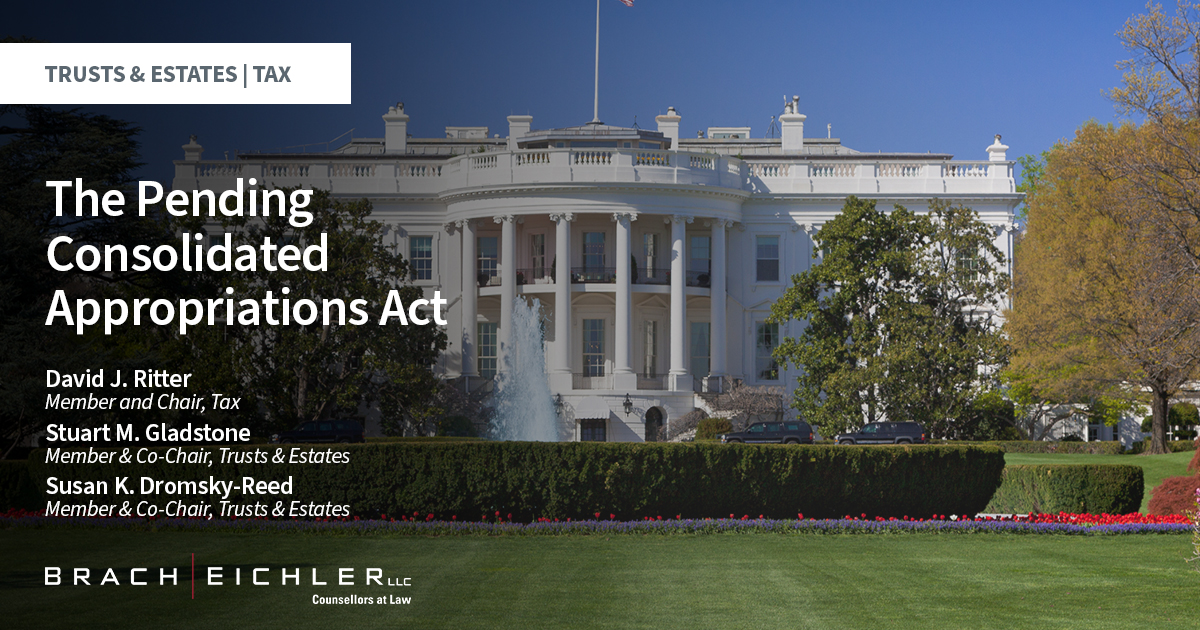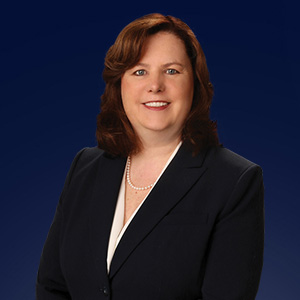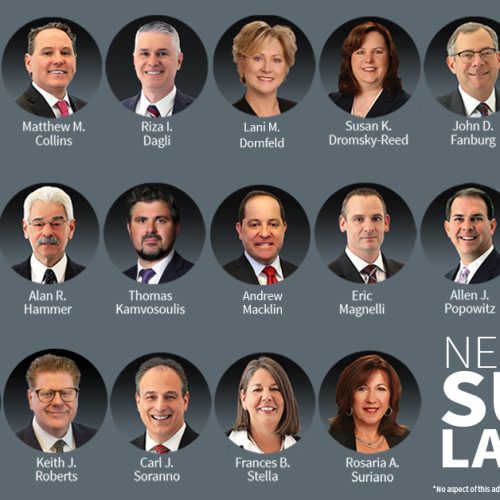The Pending Consolidated Appropriations Act

December 23, 2022
The pending Consolidated Appropriations Act, 2023 H.R. 2617, with a passage deadline of December 23, 2022, contains the SECURE Act of 2022 (SECURE 2.0) aimed at retirement plan reform. SECURE 2.0 has numerous provisions intended to expand coverage, increase retirement savings, and simplify and clarify retirement plan rules.
SECURE 2.0 is intended to build on the Setting Every Community for Retirement Enhancement Act of 2019 (the original SECURE Act). SECURE 2.0 is more expansive. Some of the key provisions include:
Increased Age for RMDs. Participants are generally required to take retirement plan distributions upon attainment of a certain age. Before the SECURE Act, the age for RMDs was 70.5. The SECURE Act increased that age to 72. SECURE 2.0 further increases the age to 73, beginning on January 1, 2023 ( meaning if you were born in 1951 or after your new Required Beginning Date is 2024), and again to age 75 beginning on January 1, 2033 ( meaning if you were born on or after 1958 (i.e. you are 64 or younger) your new Required Beginning Date is 2033). In addition, SECURE 2.0 would reduce and sometimes, eliminate altogether, the excise tax imposed on failing to take RMDs.
Mandatory Automatic Enrollment. Effective for plan years beginning after December 31, 2024, new 401(k) and 403(b) plans would automatically enroll participants upon attaining eligibility. The automatic deferrals would start at between 3% and 10% of compensation, increasing by 1% each year to a maximum of at least 10% but no more than 10% of compensation.
Emergency withdrawals including Domestic Abuse. SECURE 2.0 would permit penalty-free distributions for “unforeseeable or immediate financial needs relating to necessary personal or family emergency expenses” up to $1,000. Only one distribution would be permitted every three years, or one per year if the distribution is repaid within three years. Secure 2.0 would permit distributions of up to $10,000 for participants who need the funds because of domestic abuse. There are repayment requirements.
The Senate is expected to take up the Consolidated Appropriations Act 2023 on December 22, 2022. Assuming passage in the Senate, the House will vote on December 23. Due to bipartisan support for the SECURE 2.0 portion of the Act, few changes are expected. Whether the larger bill, the Consolidated Appropriations Act, or other portions will pass is still unknown. Final passage of the Consolidated Act of 2023 in some form or another is anticipated by the December 23, 2022 deadline.
For more information or assistance, please contact:
David J. Ritter, Esq., Member and Chair, Tax Practice, at dritter@bracheichler.com or 973-403-3117
Stuart M. Gladstone, Esq., Member and Co-Chair, Trusts and Estates Practice, at sgladstone@bracheichler.com or 973-403-3109
Susan K. Dromsky-Reed, Esq., Member and Co-Chair, Trusts and Estates Practice, at sdromsky-reed@bracheichler.com or 973-403-3146
Related Practices: Trusts and Estates, Tax
Related Attorney: David J. Ritter, Stuart M. Gladstone, Susan K. Dromsky-Reed












